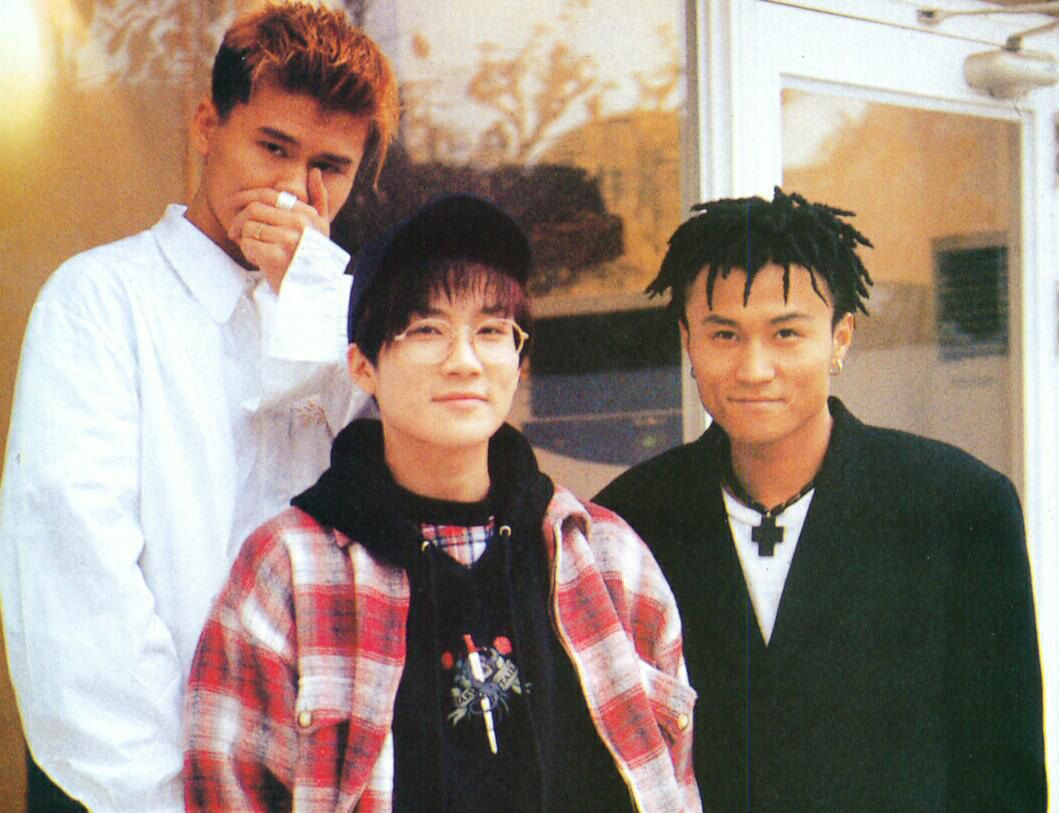Seo Taiji: K-Pop Pioneer & Legend - Biography, Music & Legacy
Ever wondered how Korean Pop, or K-Pop, transformed from a niche genre to a global phenomenon? The answer lies, in no small part, with Seo Taiji, a name that reverberates through the history of Korean music as a true innovator and cultural pioneer.
Seo Taiji, a South Korean music icon, is much more than just a musician; he is a cultural architect. His influence on the Korean music landscape is undeniable, having single-handedly revolutionized the industry. He is best known as the leader of Seo Taiji and Boys, the group that spearheaded the K-Pop revolution, introducing innovative musical styles and social commentary that resonated deeply with the youth of the time. His work continues to influence contemporary artists, as evidenced by groups like BTS, who have cited Seo Taiji and Boys as a major inspiration.
| Category | Details |
|---|---|
| Full Name | Seo Taiji () |
| Birthdate | February 21, 1972 |
| Birthplace | Seoul, South Korea |
| Occupation(s) | Singer, Musician, Songwriter, Record Producer |
| Active Years | 1989 Present |
| Associated Acts | Sinawe, Seo Taiji and Boys |
| Musical Style(s) | Rock, Rap, Techno, Alternative, Nu Metal |
| Key Albums (Solo) | Seo Taiji (1998) Ultramania (2000) * 7th Issue (2004) |
| Influences | Western Rock and Rap artists, Social Issues |
| Notable Achievements |
|
| Website Reference | Kpopping.com - Seo Taiji Profile |
Seo Taiji's journey began in the late 1980s, when he was part of the heavy metal band Sinawe. However, it was the formation of Seo Taiji and Boys in 1992 that truly launched him into stardom. The group, consisting of Seo Taiji, Yang Hyun-suk, and Lee Juno, burst onto the scene with a revolutionary sound, blending rap, rock, and techno elements, a departure from the traditional ballads and trot music that dominated the Korean music scene at the time. Their debut, "I Know," was an instant hit and signaled a seismic shift in Korean popular music.
The impact of Seo Taiji and Boys extended beyond their musical innovation. They were cultural trendsetters. Their fashion choices, music videos, and the messages embedded within their songs resonated with a generation of young Koreans, who felt increasingly alienated by the established norms. The group's music tackled social issues, and the frustrations of young people in a rapidly changing Korea. This engagement with contemporary themes set them apart and cemented their status as cultural icons.
Their music was not just about the sound; it was about the message. The group was credited with reshaping the Korean pop music industry, moving away from a focus on adult music and ballads towards dance music aimed at teenagers. This change in focus was not just a trend, it was a revolution, at a time when British and American pop had a strong influence on Korean music, especially young people. Seo Taiji and Boys played a key role in taking away that influence, and they were spokesmen for a generation.
The band's exploration of diverse genres, including gangsta rap and alternative rock, continued with their fourth and final album. The album, Seo Taiji and Boys IV, released in October 1995, was their most politically charged to date. It tackled social issues with an intensity that shocked some but resonated with many others. This album, however, would stir up significant controversy, leading to the group's eventual disbandment in 1996.
In the mid-1990s, South Korea was experiencing rapid social and economic change. Traditional values were being challenged, and the younger generation sought new forms of expression. Seo Taiji and Boys provided that outlet. They were rebels with a cause, their music providing commentary on the political, social and cultural climate, and reflecting the attitudes of a youth movement. Their influence on pop culture remains as potent today as it was then, with younger bands remaking their songs, to mirror their own frustrations.
After the disbandment of Seo Taiji and Boys, Seo Taiji embarked on a successful solo career. He explored various genres, including nu-metal, showcasing his artistic versatility. 7th Issue, his solo album, marked a departure, as he experimented with the nu-metal genre, influencing a new generation of artists. His solo work continued to push creative boundaries.
Seo Taiji's return to the music scene after a period of absence was marked by the release of "Moai" in 2014. This single was the first part of a larger project that included "Bermuda Triangle" and "Atomos Part Secret," highlighting his innovative approach to music. This ambitious project demonstrated his continuing commitment to pushing creative boundaries.
His influence continues to resonate today. The success of Seo Taiji and Boys paved the way for the global success of K-Pop, and artists like BTS openly acknowledge his influence. His bold experimentation, his willingness to challenge the status quo, and his commitment to using music as a vehicle for social commentary have left an indelible mark on the Korean music industry and beyond.
The legacy of Seo Taiji is one of innovation, influence, and artistic courage. His willingness to take risks and challenge conventions has made him a true pioneer, whose impact is still felt in the K-Pop world today. From the incorporation of rap in Korean music to the tackling of social issues through song, he helped shape the landscape of the Korean music scene. His musical evolution is still a blueprint for artists aiming to make a mark in the industry.


